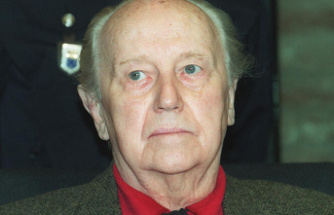Researchers from the Carlos III Institute of Health develop a strategy that prevents rejection without the need to take immunosuppressants for life
After receiving a transplant, it is normal that the agency do everything possible to reject that organ. To prevent this from happening, transplant patients must take lifelong immunosuppressive medications that, basically, prevent the body's defenses from attacking the new tissue to the identicarlos as others.
This type of treatment has many risks associated, so getting the acceptance of transplanted organs without the necessity of resorting to this therapy is the aim of different research groups.
But a team from the Institute of Health Carlos III could have taken an important step in this direction. Have developed a nanoterapia that is directed toward cells of the innate immune system and allows you to avoid the rejection without the usual medication.
so far, their research has been tested only in mice, but the results, published in the journal 'Immunity', one of the publications of the group 'Cell', are promising.
"Using nanoparticles that are 30 times smaller than a hair, we have managed to inhibit the mechanisms responsible for the onset of transplant rejection", explains Jordi Cano Ochando, specialist of the National Centre of Microbiology Carlos III Health Institute and main author of the work.
In particular, your strategy works against myeloid cells (and their precursors), in charge of 'raise the alarm' and initiate the immune response to identify a transplanted organ as an external agent to combat.
researchers have developed nanoparticles from lipids that can be obtained from the blood of the same patient and which are able to penetrate into the bone marrow and "freeing agents immunoregulatory" that inhibit the action of myeloid cells already existing and of their precursors. This causes, in the words of Cano Ochando, that the therapeutic effects last the test of time.
"We have seen that a single dose of nanoparticles is as potent as 30 pills", notes Ochando, which proved the effectiveness of the treatment in a heart transplantation model in mice that received three doses of nanoparticles in its queue.
"we Injected three doses of nanoparticles in the first week after transplantation, and we observed that, after 100 days, 75% of the animals had accepted fully the transplant without showing side effects," says the researcher.
The next step in the study, which is still in its preliminary stages, it goes by knowing whether the effect is indefinite, as well as if the 'brake', induced in myeloid cells against transplant rejection causes some undesirable effect in the immune system, such as the inability to fight some infections or the development of a cancer. By the time, experiments in animals show that B and T cells, two of the main 'police' of the body, maintain their function.
If all goes well, scientists believe that the translation of the results of the consultations will not be complicated, as the obtaining of nanoparticles is relatively simple. They expect to start human trials within three to five years.
Cano Ochando optimistic about the prospects of the strategy, as they act against cells of the innate immune system. On the contrary, the usual drugs are directed to targets of the adaptive immune system, "whose response is more difficult to control".
The scientist stresses that his research has been fundamental to know that the immunity-trained, which is the ability of the innate immune cells have 'memory' in immune, intervenes in the mechanism of rejection of a transplanted organ.
In that sense, remember that the research that you have carried out can not only be very helpful to improve the life of the transplanted patients, but also of patients affected by other autoimmune diseases or inflammatory diseases, whose immune system is sobreactivado.
"The prevention of the immunity-trained can also be applied to treat immune activation excessive", says the researcher, who expects to initiate specific studies to verify the effect of this approach in diseases such as colitis or diabetes.
To Beatriz Domínguez-Gil, director of the National Transplant Organization (ONT), research is "an initiative very innovative in a very necessary".
"Although this is a preclinical study and see how they can transfer their results to the patients, I think that can be a giant step forward," says Domínguez-Gil, who recalled that the immunosuppressive therapy that the people who have received a transplant need to day of today has many side effects, including an increased susceptibility to develop infections or an increased risk of hypertension, diabetes or hypercholesterolemia, among others.
Date Of Update: 26 October 2018, 19:40











